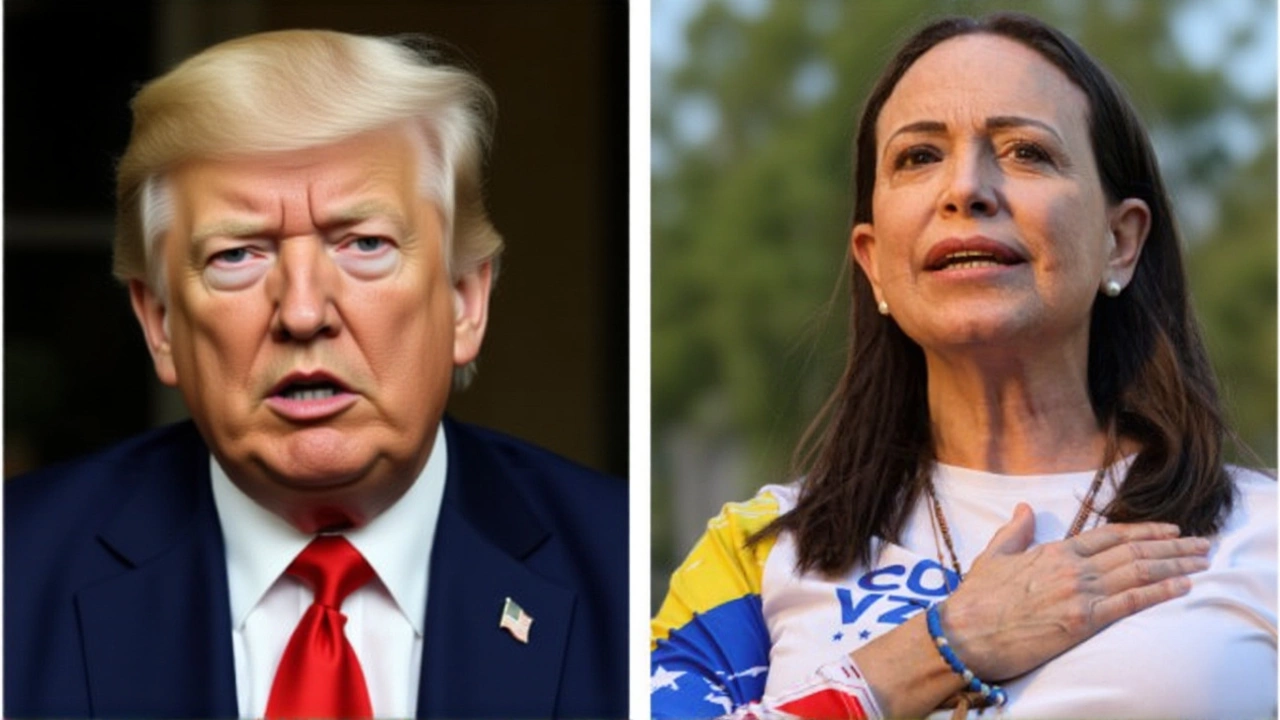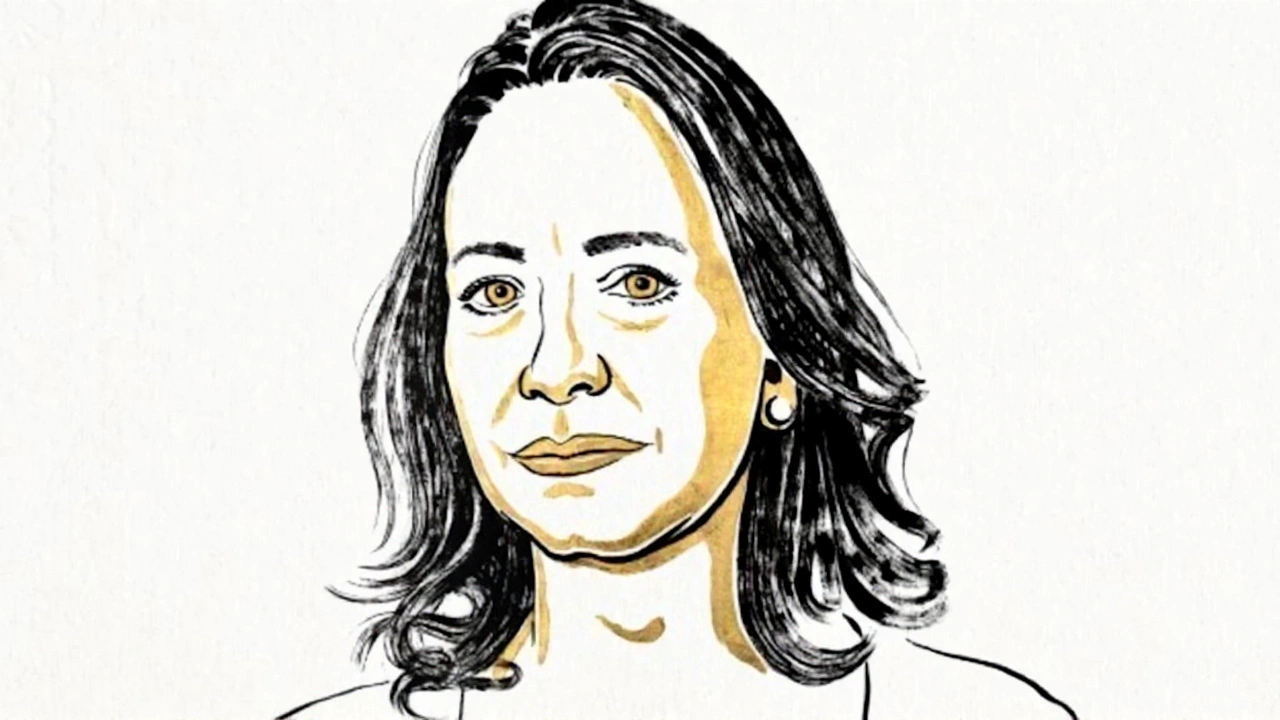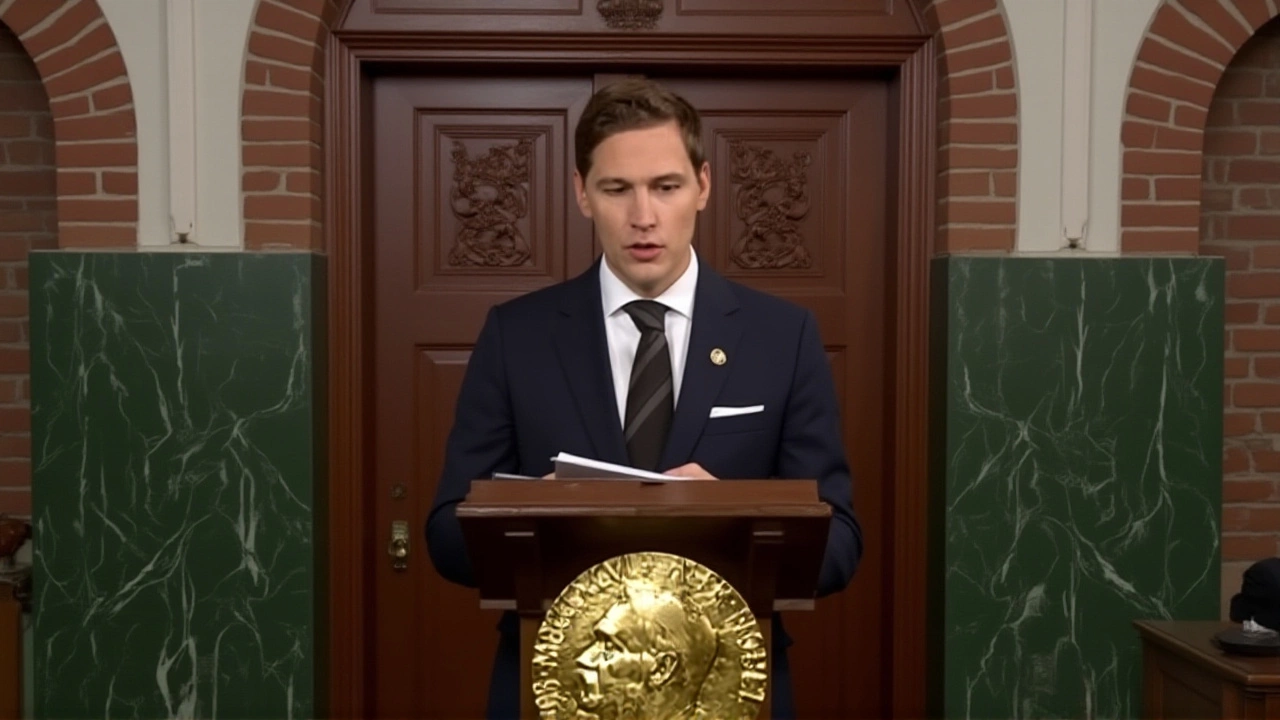When Maria Corina Machado, a 58‑year‑old Venezuelan opposition activist and industrial engineer, was announced as the 2025 Nobel Peace Prize laureate, the world stopped and listened.
The decision came from the Nobel Committee on , a fact confirmed by a YouTube broadcast from Deutsche Welle (DW) posted the same day. For Machado, the award spotlights three decades of non‑violent resistance against a regime that has left most of Venezuela in economic and humanitarian crisis.
Background of Machado’s Activism
Machado’s public life began in 1992 when she founded the Atenea Foundation to aid street children in Caracas. A decade later she co‑created Sumate, a watchdog that trained electoral observers and pushed for transparent voting.
Her political breakthrough arrived in the September 26, 2010 parliamentary elections, where she captured 292,576 votes – the highest tally of any candidate nationwide – and entered the National Assembly of Venezuela. Her tenure was cut short in March 2014 when Diosdado Cabello, then president of the Assembly, expelled her without due process.
Undeterred, Machado helped launch Vente Venezuela in 2013 and, in 2017, co‑founded the broad‑based coalition Soy Venezuela alongside former Caracas mayor Antonio Ledezma and ex‑UN ambassador Diego Arria. The alliance now counts 47 council members, representing all 23 states and the capital district.
The Nobel Peace Prize Announcement
DW’s video quoted the Nobel Committee’s citation, which praised Machado’s “persistent, non‑violent struggle for democracy, human rights, and humanitarian relief in Venezuela.” The prize, formally known as the Nobel Peace Prize, carries a €9 million award and a global platform that few Venezuelan dissidents have ever enjoyed.
Within minutes of the announcement, the European Union issued a statement from its headquarters in Brussels. The EU said it would convene an emergency foreign‑ministerial meeting on October 17, 2025, to consider “targeted sanctions against officials responsible for systematic human‑rights violations.”
Reactions in Venezuela and Abroad
Inside Caracas, Machado’s supporters gathered in clandestine locations, chanting her name while police sirens wailed in the distance. A young voter told us, “It feels like the world finally sees our pain.” Meanwhile, the Maduro government dismissed the award as “foreign meddling.” State‑run media quoted President Nicolás Maduro as saying the prize was “an attempt to legitimize opposition propaganda.”
International NGOs such as Human Rights Watch and Amnesty International issued parallel statements, noting that the Nobel nod “adds pressure on the regime to cease arbitrary detentions.” Their data, published earlier this year, document 48,763 arbitrary arrests and 1,842 politically motivated executions between 2017 and 2024 – figures Machado herself helped compile through Soy Venezuela’s monitoring network.

Potential Impact on the Maduro Regime
Analysts at the Council on Foreign Relations argue that the Nobel award could “catalyze a new wave of diplomatic isolation for Venezuela.” The EU’s planned sanctions may target oil executives, military officers, and judiciary members linked to political repression.
- Sanctions could freeze €2.3 billion of assets held by senior officials.
- Oil export quotas may be reduced, cutting an estimated $4 billion in annual revenue.
- Travel bans could affect over 250 regime loyalists.
Conversely, some experts warn that Maduro may double down, using nationalist rhetoric to rally supporters. The coming weeks will likely see a tug‑of‑war between external pressure and internal crackdowns.
Historical Significance and Future Outlook
Machado’s Nobel win marks the first time a Venezuelan opposition figure has been honored with this prize. It joins a short list that includes Nelson Mandela (1993) and Aung Suu Kyi (1991) – both later embroiled in controversy. “History shows that Nobel laureates often become symbols of hope,” notes Dr. Elena González, a professor of Latin American studies at Yale. “Whether that symbolism translates into concrete change depends on how the international community leverages the spotlight.”
For Machado, the award may open doors to meet world leaders, testify before the United Nations, and perhaps secure safe‑house arrangements for her family. Yet the danger remains real; she continues to live in hiding, moving between safe houses in Caracas to avoid arrest.
What happens next? The EU summit on October 17 will set the tone for Western policy. If sanctions are robust, Venezuela could face a new wave of economic contraction, potentially hastening political negotiations. If the regime survives the pressure, the opposition may need to recalibrate its strategy, perhaps focusing on grassroots mobilization ahead of the next election cycle slated for 2028.

Key Facts
- Winner: Maria Corina Machado
- Date of Announcement: 10 October 2025, 11:00 CET
- Prize Amount: €9 million
- Primary Reason: Non‑violent resistance for democracy in Venezuela
- EU Response: Emergency meeting on 17 October 2025 in Brussels to consider sanctions
Frequently Asked Questions
How does the Nobel Prize affect Venezuelan opposition groups?
The award shines a global spotlight on their cause, potentially attracting more funding, diplomatic backing, and activist solidarity. It also gives opposition leaders a platform to address international bodies, which could translate into concrete pressure on the Maduro regime.
What sanctions is the EU planning after the Nobel announcement?
While the exact measures are still being drafted, officials have mentioned asset freezes for senior officials, travel bans on over 250 regime loyalists, and a possible reduction in oil export quotas that could cost Venezuela up to $4 billion annually.
Why was Maria Corina Machado expelled from the National Assembly?
In March 2014, Diosdado Cabello, then president of the Assembly, removed her without due process, citing vague corruption accusations—a move widely condemned by international observers as a breach of constitutional protections.
What is the significance of the Soy Venezuela coalition?
Formed in 2017, Soy Venezuela unites 47 parties and civil‑society groups across all Venezuelan states, representing roughly 6.2 million registered voters. It has become the primary vehicle for documenting human‑rights abuses, with its database showing over 48,000 arbitrary detentions.
What are the next steps for the Nobel Committee after awarding Machado?
The Committee will host a ceremony in Oslo on December 10, 2025, where Machado is expected to deliver a speech on peaceful resistance. Additionally, the Nobel Foundation will monitor how the award influences diplomatic actions and human‑rights advocacy in Venezuela.
